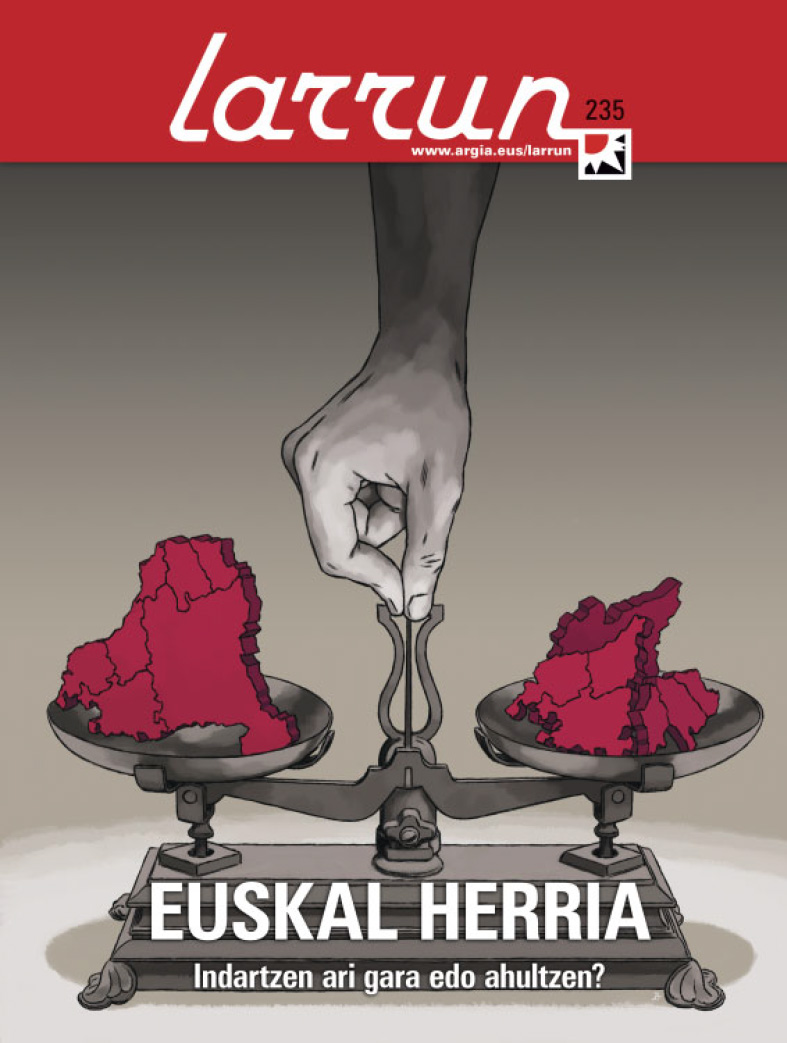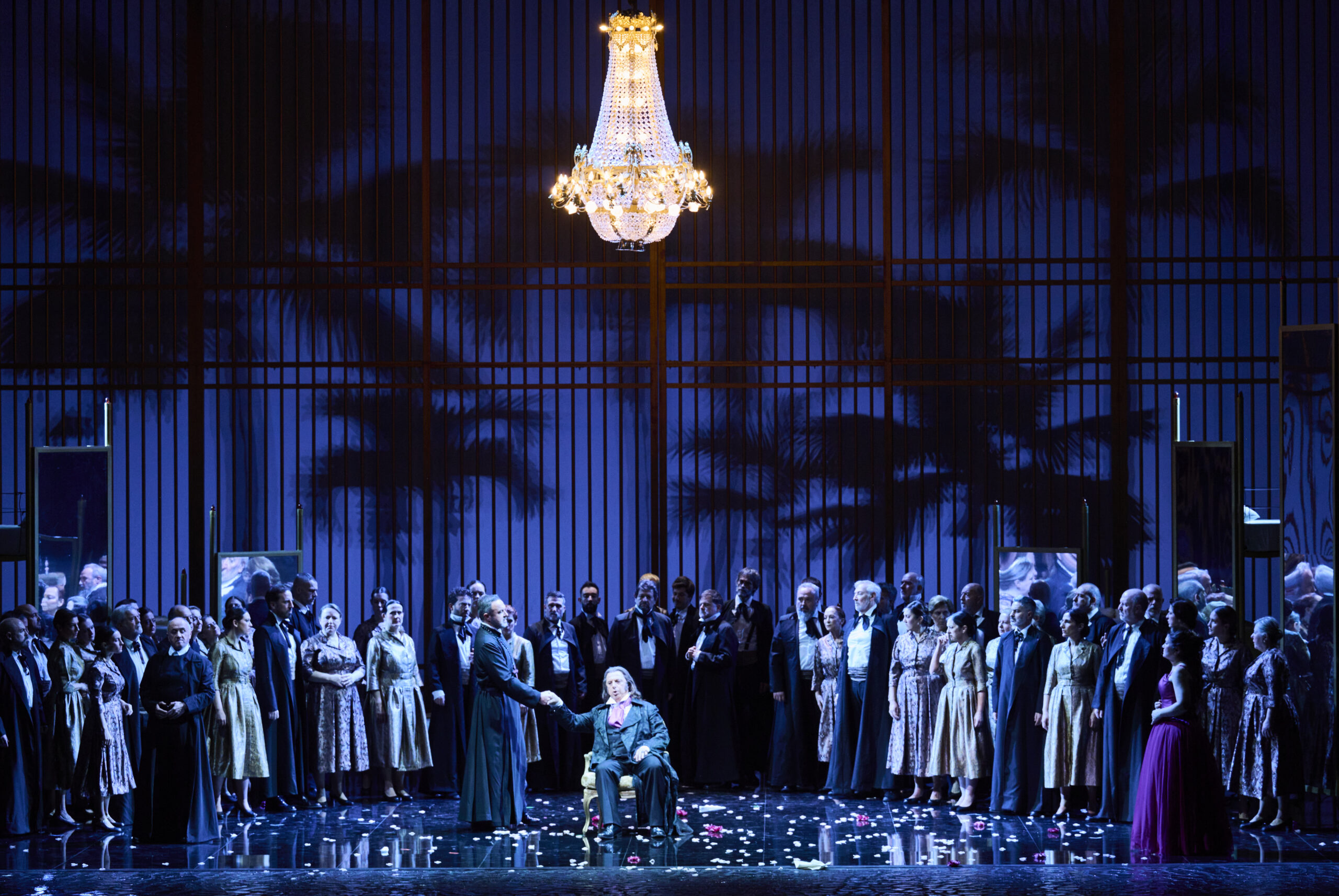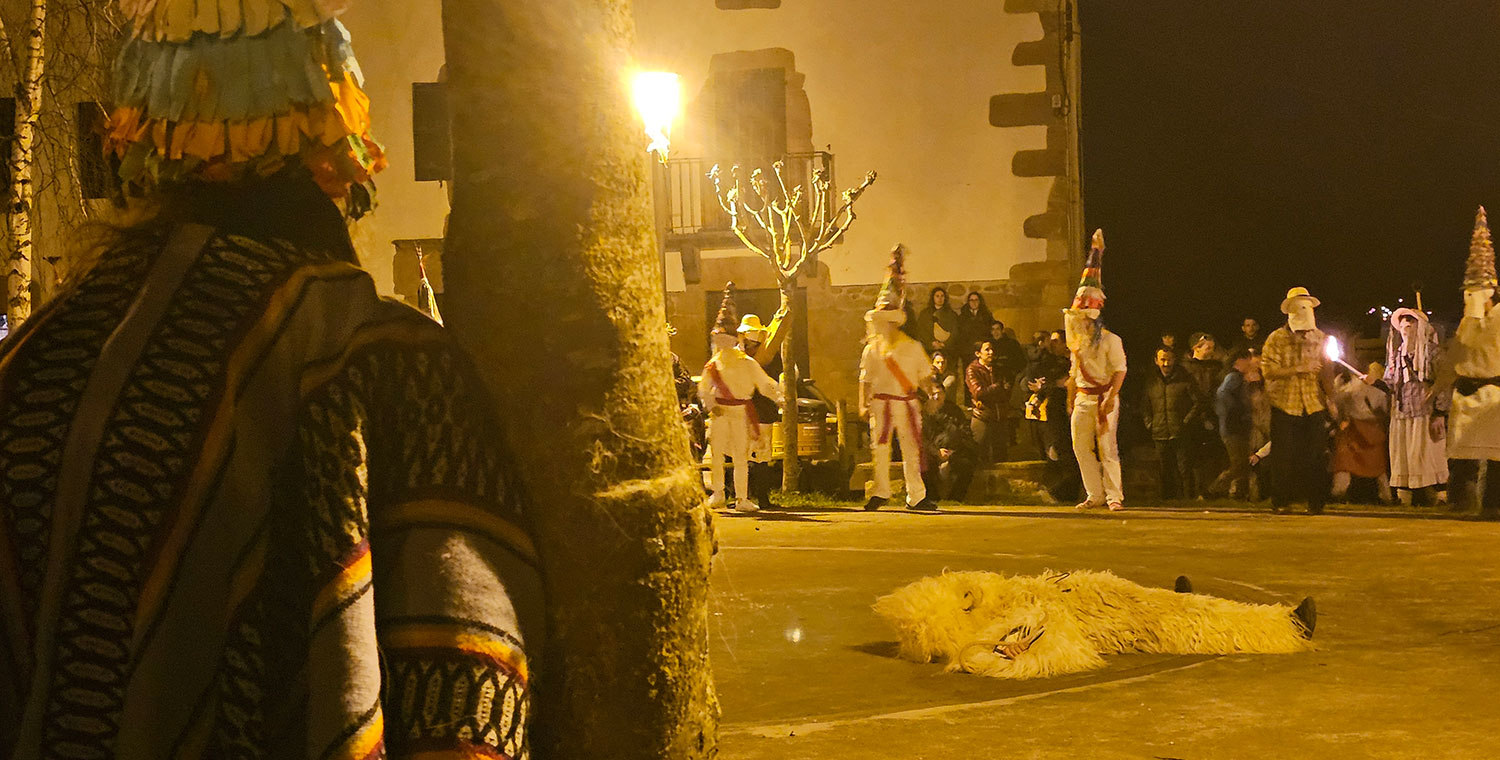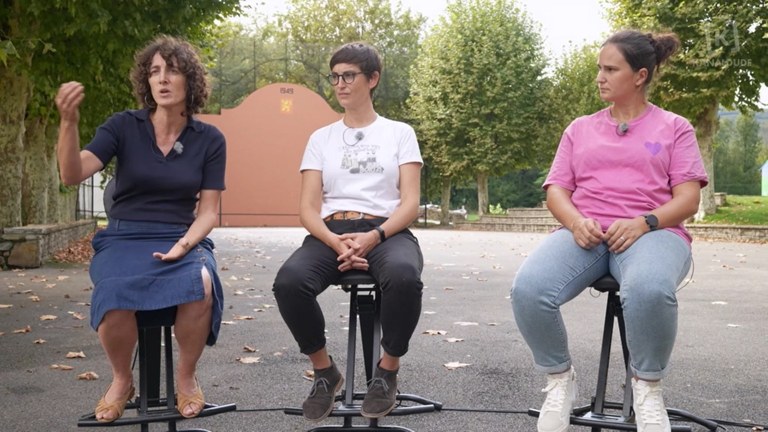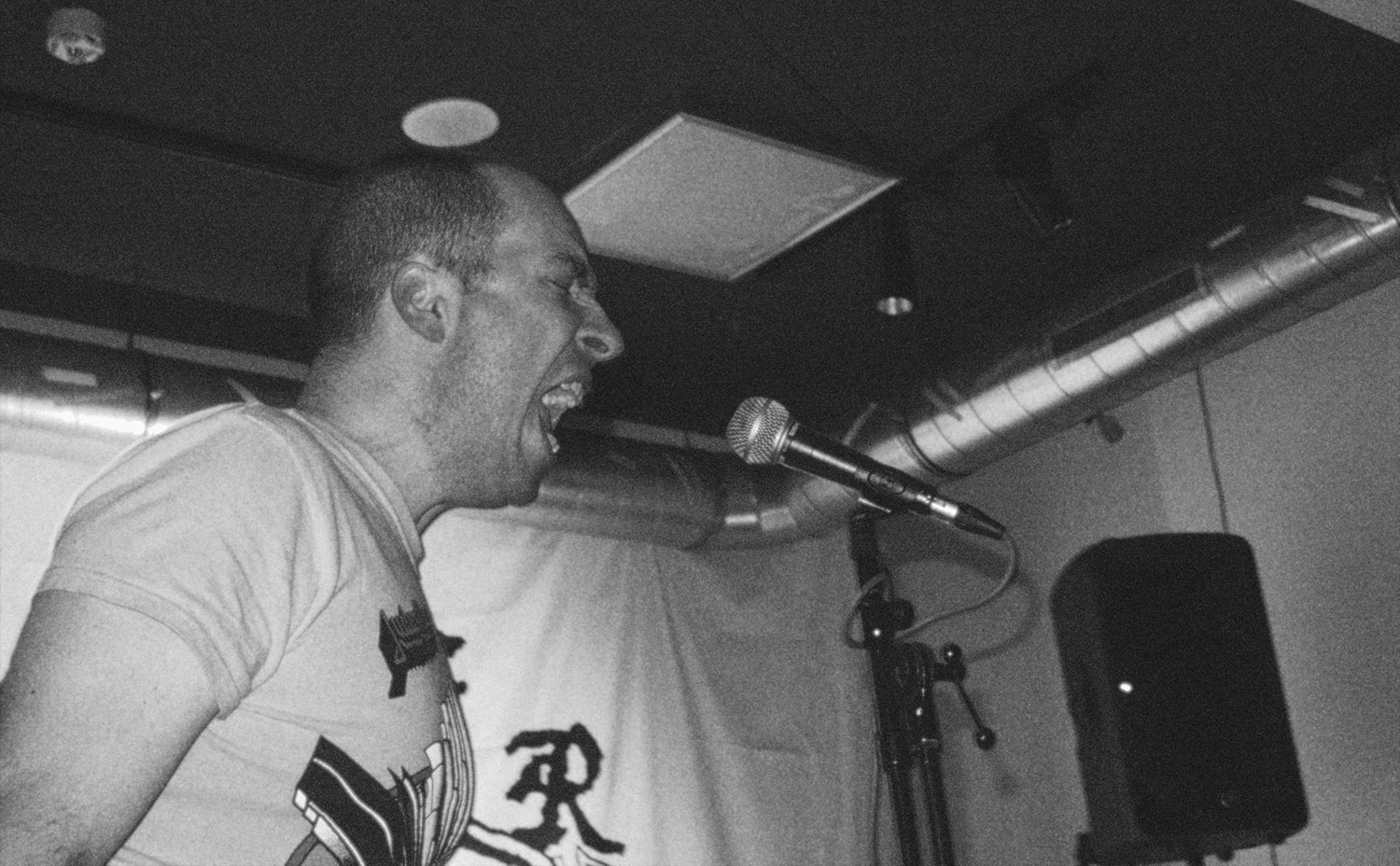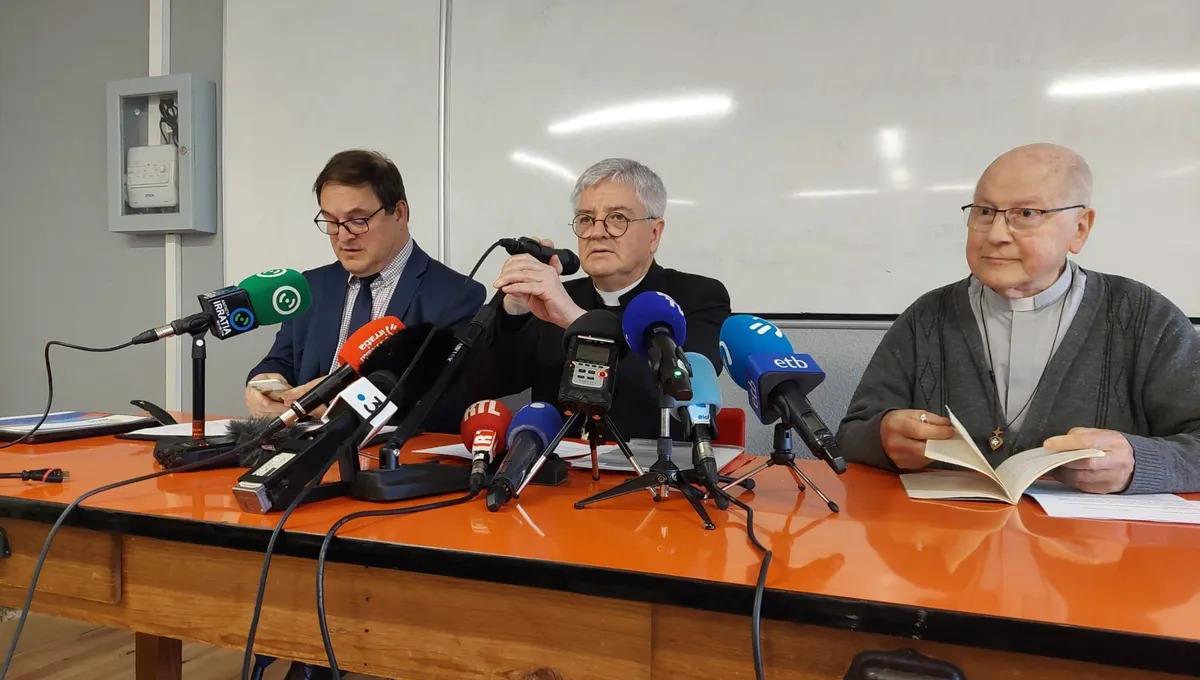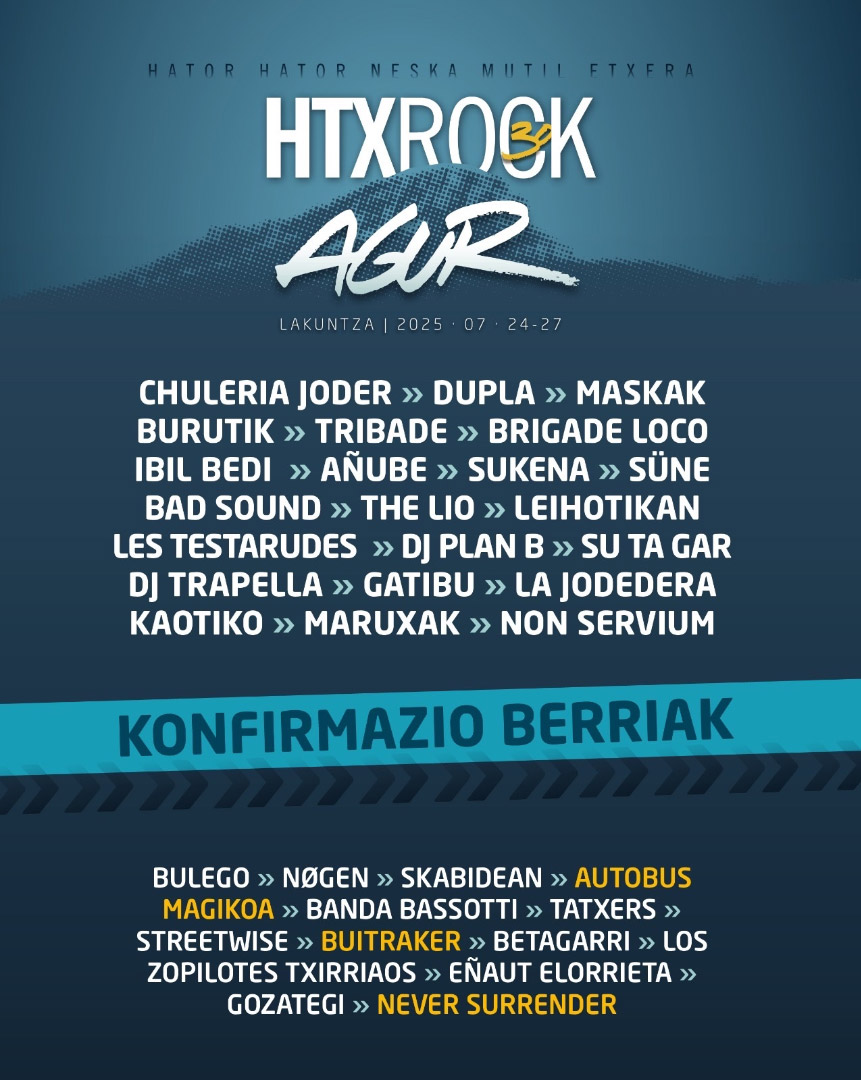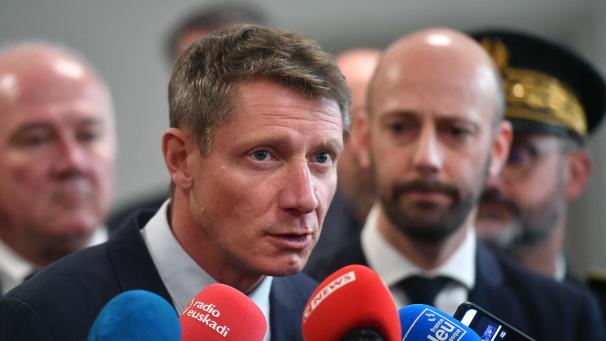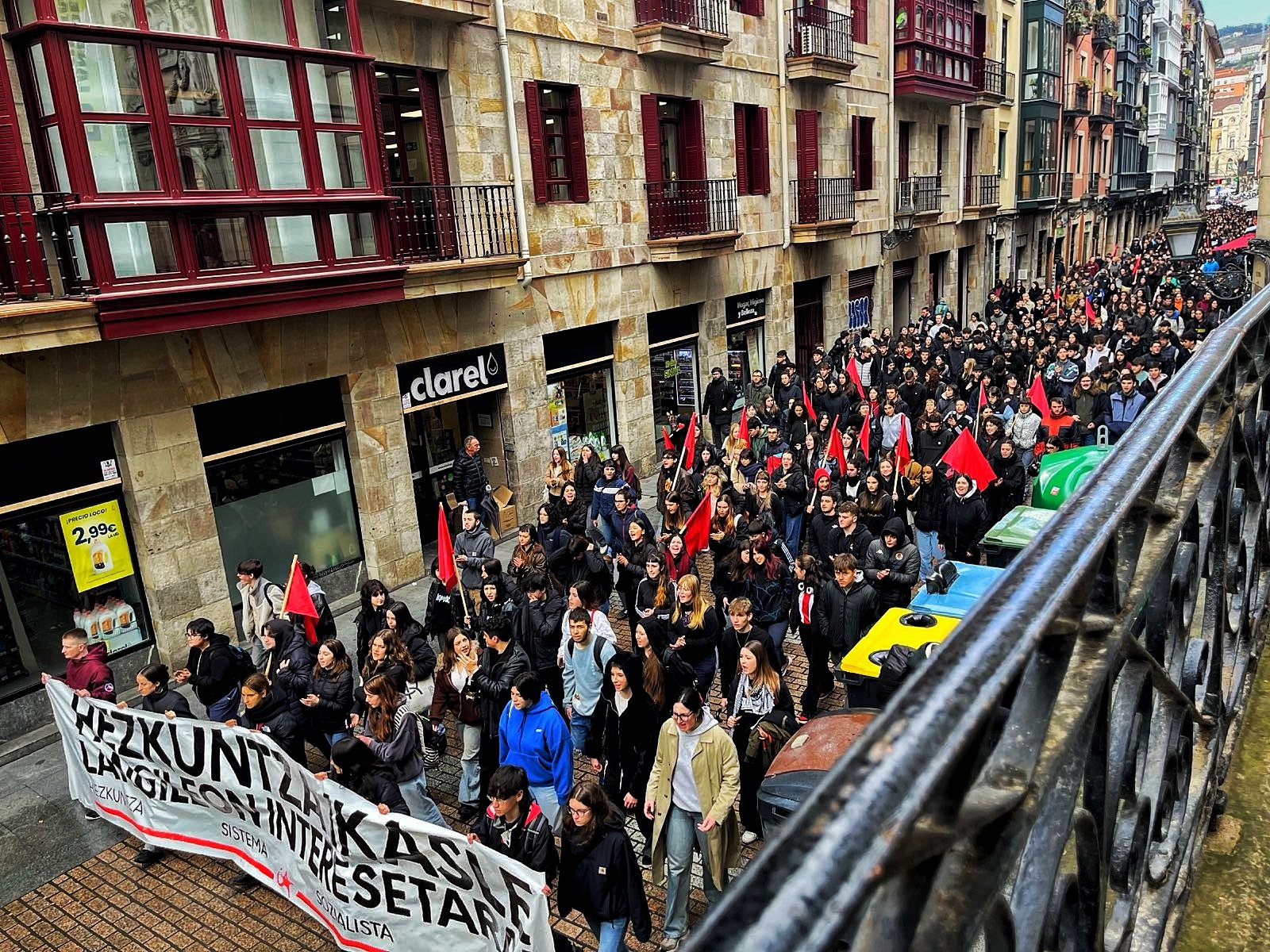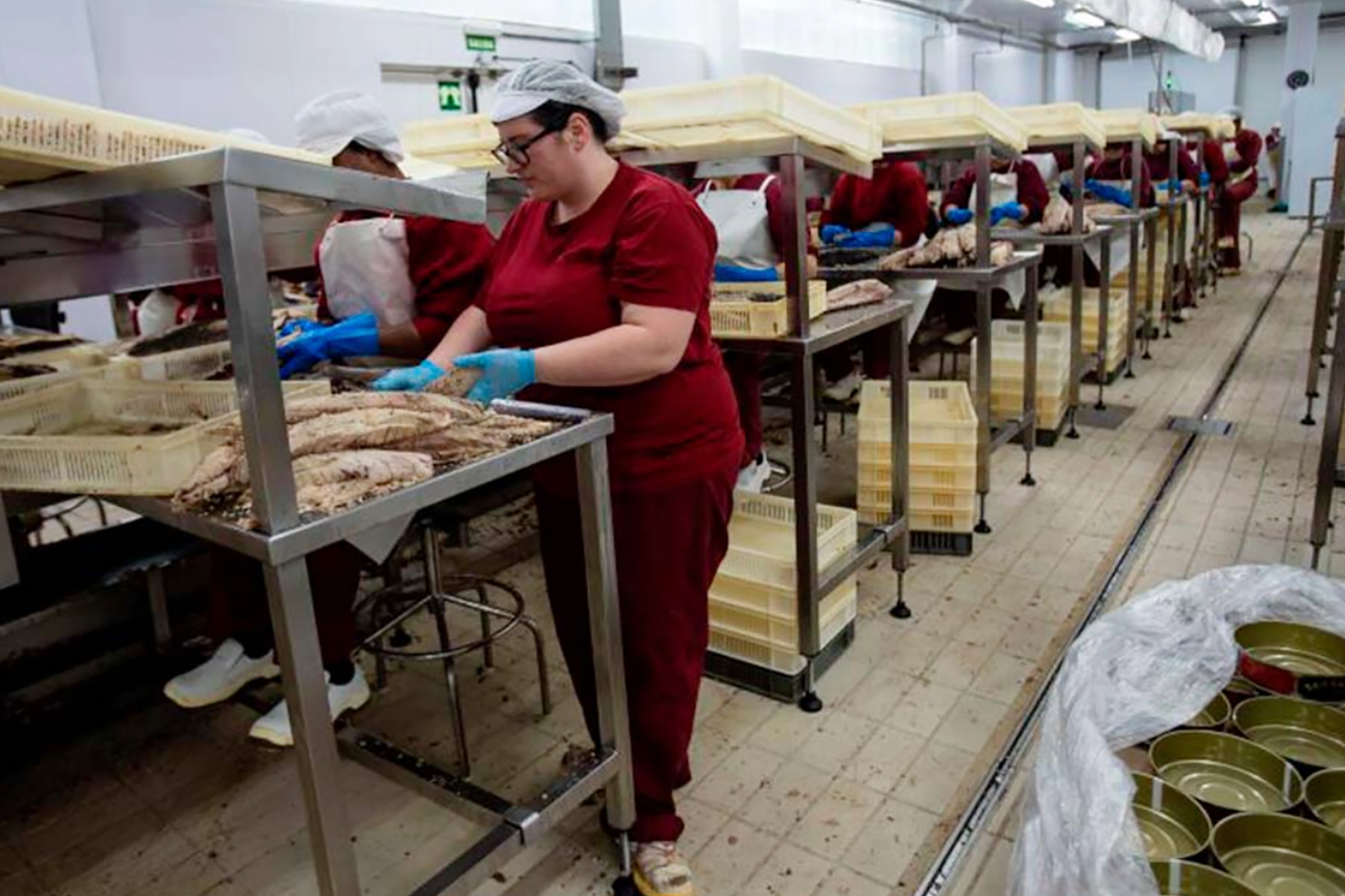"Our first concern is the sustainability of Euskal Herria in the 21st century"
- Bea Akizu (Soraluze, 1969) coordinates two areas of Eusko Ikaskuntza: a policy of socialization and another of society and diversity. An anthropologist of training, has worked for years in teaching, music and art. Like the other members of the institution, it is immersed in the centenary of Eusko Ikaskuntza, among other things, in the elaboration of the Green Paper of the Territory of Vasconia. A Green Paper contains a collective reflection on a subject and often, as in this case, it is a prologue to the White Paper.
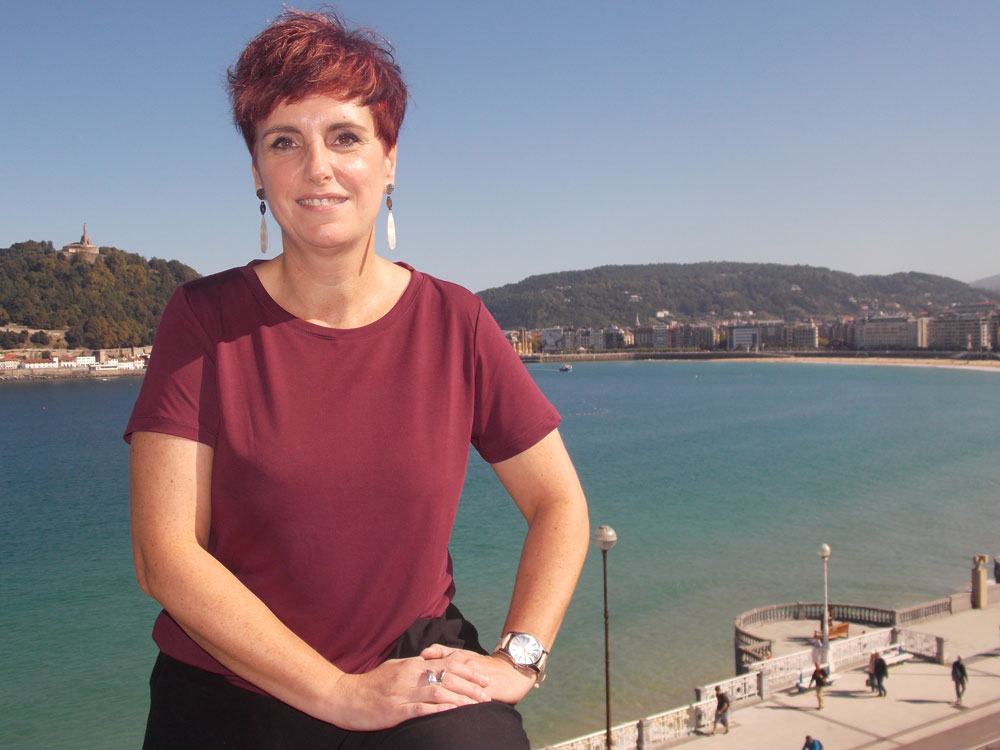
Eusko Ikaskuntza has produced the Green Paper on the Territory of the Basque Country. Why? A
hundred years ago, we had a similar challenge, to help this people reflect on their own to imagine a new future. So you had to imagine paths that had not yet been addressed. Today we have to answer the same question, but from a more complex situation. We have a very active civil society, in many and many knowledge points, the Basque territories are institutionalised… In order to respond to this complexity, it is up to us to respond in an innovative way when deciding on our future.
Taking as its axis the cohesion and solidarity of the Basque territories, we began in 2014 with this reflection among many. From the outset we were clear that we had to apply an additive and integrative logic, open a path based on collaboration; gather the polyhedral look, the academic knowledge and the knowledge that comes from the praxis.empezamos to lay the foundations of the Green Paper.
100 years ago, Eusko Ikaskuntza was commissioned by four deputies from the Basque Country. Where does the momentum come from now? The creation of
Eusko Ikaskuntza was then promoted by the social, political and cultural elite, along with the support and care of the four deputies. The capital of Eusko Ikaskuntza are the people and their relationship with the institutions. The greatest potential of IS is the ability to build spaces for dialogue between different people and their character of territoriality – well located in all territories and considered with respect for the work carried out throughout history. In the Green Paper we have built up different views around different areas. Our success is in channelling chains of trust between agents and institutions, people-based.
Therefore, in the Green Paper people from different socio-political and cultural areas of the Basque Country Herria.Los work, sectors
that consider Euskal Herria as a subject are the first to come to this type of reflection. We have to extend it to more layers, but we're doing it bit by bit. We have to deal with all kinds of fossilizations, with the way we make policy, with the way we generate and disseminate knowledge… we have to address our future among many, creating strategic areas of deliberation and working tactics in other scenarios.
It is also important to collect the narrative from all territories. We talk a lot about Euskal Herria, but from the bizkaitarrism or from the centrism in the CAV. Everyone has their personality and we are all enriched.
One of the objectives of the Green Paper is to deepen the democratization of the territory. Where are the keys to this? Political
empowerment of citizenship, deliberation, equality, guarantee, bottom-up determination… To create a new governance model based on democratisation, to promote democratizing attitudes, civil society and institutions must make their deliberation processes, for exchange and food between all and all. We have to rely on a profound process that activates collective intelligence.

In the introduction of the book, I was struck by the fact that the point that makes reference to all this, rather than being a little bit at the beginning, is at point 21, under the title Citizenship. The
order is not important in this work, the important thing is to gather the most basic elements and points of view. We have four main bags. A bag is our society with multiple identities: What are we and what do we want to be? How do we build a shared project? How to strengthen citizenship? Another is territory and land. What relationship do we want with the other territories, how do we compact relationships? A third is socio-economics: in that process of shared creation, what and how? What welfare model do we need? And a fourth is governance based on democratization. What relationship do we want with states? With Europe? What processes of democratization do we need to activate in order to maintain the process of globalization?
And in all of this is there concern about the idea of Euskal Herria? Are you consolidating or weakening Euskal Herria?
Yes, our process is based on the participative dynamics carried out in 2014 in Pamplona, Baiona and Durango. The agents and the citizenship gathered at that time identified the concerns and challenges they faced. The sustainability of the Basque Country in the twenty-first century was the first concern and the branches that supported it: socio-economy, socio-political, Basque and socio-cultural reality. Always looking to build the future.
One of the main concerns was also that Hego Euskal Herria emerged from the Franco regime. It was then that the State of Gernika and the Amejoramiento de los Fueros were set in motion. In 40 years have these instruments been correctly used to strengthen the reality of Euskal Herria?
In this respect there may be a number of views. These tools have given us a way to our self-government in the South, great progress has been made and still have great potential. But, as was done then, can we take a step further now? 21. In order to respond to the challenges posed by the century, the need for new models and frameworks is becoming increasingly necessary. Above all with a view to democratisation, and in this respect, it is essential to respect the will of the citizens and to take account of the pace of each territory. For example, with regard to Europe, the principles that underpinned it were citizens and peoples, but then it has become the Europe of states and markets. Can we therefore demonstrate to Europe that another form of relationship based on initial principles is possible?
In the Basque Country many think that this fragmentation of administrative territories has brought with it that each one should focus on it and lose its general vision.
This concern has also arisen. There are a number of sectoral relations, but then we do not have the capacity – our fears are also there – to create other points of encounter and to compact different areas. In several clusters there are links, also in Basque… but the political culture we have does not allow us to think that at the institutional level we can also act in a different way. That's why we empower civil society, citizens, institutions and academia to activate the key popular project.
The scope of communication is currently considered key to the construction of the identity elements of a people. In this LARRUN, Josu Amezaga says there is no national communication space in the Basque Country. We are very weak in that regard.
Yes, it is true. A strong communication system is key to knowing and breaking the hegemony of our communicative agenda. Euskal Herria disappears from this agenda that they offer us, they are agendas to feed conflicts between territories and visions and not connections, common soils and shared projects. The media have an enormous responsibility to help imagine the paths of cohesion.
Is there a will to build this space of communication between those who have institutional responsibility? The people who work in this area often have to do a great exercise in volunteering to believe it.
That's right. Those of us who are most optimistic know that we are in the marathon, but not how many kilometers the marathon has. It is difficult and, furthermore, we are used to responding to them from our strength. Communication is one of the important areas, the educational system is another, the university… We are fine, great progress has been made, but the crisis is noticeable there. Organisations must be innovative and very courageous. As usual, civil society is ahead of the institutions. That is why we have to believe that a strong civil society will help the institutions to dispel fears and reform them. We cannot supplant the institutions, or violate them, each of us has our obligations and rhythms, but we do help to be brave.
In the last 40 years we have not been able to make a joint holiday in Euskal Herria, not even a national library, a unitary institutional statistical organization… and the same in many other aspects. What you mention about the Hard Marathon.
Yes, and the key to doing that is to understand that that's a job among many. Those working for the Basque Country have great difficulties in obtaining unified data, in investigating the subsidies of each institution, other calls are very structured in their respective fields and it is very difficult to go further, the existing tools are not prepared to respond to this global logic.
The case of frog in hot water is known, which gradually heats up and the soft frog, but as soon as you realize, the water has become too hot and the frog has died. Is there such a risk with Euskal Herria?
It is this concern and we must make society aware of it. We want citizenship to activate its internal forces, to realise that its well-being comes from the activation of collective identity and to help us position ourselves in Europe and in the world. Those of us who are working on the Green Paper process have a number of views, but we are aware of this, it is the soil that we share. Society does not sleep, but it lacks connection.
But let us not fool ourselves, political power is the key to building any project of the Basque Country. Are we using that political power that we have in that direction?
That's it. We are pooling and pooling agents with a level of power in the society of the different territories in a scenario that is not the usual for them, discussing the bases of a country project that can be constituent.
And do they have the will?
With different intensity, but yes. The foundations we are going to lay for the White Paper go in that direction, in order to bring these political forces together. There will be different speeds, some slower initiatives, but there must also be initiatives that can be put into practice. Some ideas or initiatives are able to implement them immediately in public policies and others are ways to develop trust, networks and relations.
Are we talking about deadlines in the fundamentals of the White Paper?
They will be fixed, but our White Paper is particularly related to the marathon. The White Paper does not come from the efforts of any institution, it comes from civil society, and we still have many links and synergies. But we have succeeded in activating thousands of people from different backgrounds, territories and backgrounds in this process of reflection, and that is a lot. The White Paper will have a basis for compromise.
When do you want to finish the book?What will be done this
year will be possible to do it in 2019. There are issues that will be looked at in the long term. The cultural sphere and the educational system have not yet been much deepened. But in the field of democratic governance, the welfare model, the management of diversity and the community that wants to live in Euskera, for example, will create committed agendas, with an architecture and a roadmap. I believe that with what is going to come out this year we will have a boost of three or four years, then we will have to take a step further, chaining constant complicity.
Ongi etorria eman digu Unai Mendizabalek A eredutik D eredura aldaketa egitea erabaki dugulako Judimendi auzo eskolan. Bidea malkartsua izango dela ere ohartarazi digu Armentia Ikastolako guraso eta Arabako Ikastoletako lehendakariak. Gure esker ona adierazi nahi diogu eman... [+]
Bost urte igaro dira pandemiaren hasieratik. Pandemia horrek ekarri zuen denok zaintza eredua ezagutzea, inondik inora ere behar bezala ez zebilena. Egoitzetako kutsatzeen eta hildakoen datuak, batez ere pribatuetan, zifra hutsak baino askoz gehiago izan ziren.
2020ko... [+]
Tasa edo zerga turistikoaren eztabaida urtetan luzatzen ari da, erakunde publikoetan ordezkaritza duten indar politikoen artean zabala den arren ezarri beharraren gaineko adostasuna. Eztabaidetako bat da zerga hori zein erakundek kobratuko duen: zenbait udalek (tartean... [+]
FITXA
Zer: OLBEk antolatutako Gaetano Donizettiren ‘La favorite’ opera.
Nork: Euskadiko Orkestra Sinfonikoak (zuzendaria: Riccardo Frizza) eta Bilboko Operaren Abesbatzak (zuzendaria: Boris Dujin).
Noiz: otsailaren 18an.
Non: Bilboko Euskalduna Jauregian.
Zuberoako ohiturei buruzko bi liburu ditut gogoan. Batek XX. mendean aritu izan diren 180 dantzari eta soinulari aipatzen ditu. Haien artean, emakumezkorik ez da agertzen. Besteak, pastoralei egiten die errepasoa eta hor emakumeak aipatu aipatzen dira, baina omisio esanguratsuak... [+]
Olor
Noiz: martxoaren 9an.
Non: Bilboko Sarean espazioan.
---------------------------------------------------------
Esperantza. iz. Nahi edo desiratzen dena gertatuko delako edo lortuko delako uste ona.
Izen horixe jarri zion Jokin Azpiazu Carballo Olor ermuarrak bere... [+]
Ba al dakizue frantses batzuk harritu egiten direla mugaren alde honetan ere euskaldunak bagaudela jakitean? Ba bai, harrigarria bada ere, behin, Donostian, frantses batzuei entzun nien sinetsi ezinik beren buruari galdetzen: “Saint-Sébastien est au Pays... [+]
Prentsaurrekoa eskaini dute ostegun honetan Marc Aillet Baionako apezpikuak, elizbarrutiko hezkuntza katolikoko zuzendari Vincent Destaisek eta Betharramgo biktimen entzuteko egiturako partaideetarikoa den Laurent Bacho apaizak. Hitza hartzera zihoazela, momentua moztu die... [+]
22 talde gehiago iragarri dituzte Lakuntzan uztailean izanen den HatortxuRockerako: Bad Sound, Dupla, Su Ta Gar, Chuleria Joder!, Brigade Loco, Leihotikan, Burutik, Tribade, Maskak, Les Testarudes, Non Servium, Añube, Dj Plan B, Gatibu, DJ Trapella, La Jodedera, Süne,... [+]
Bidarteko gasnategian bahiketa burutu duen gizona, militar ohia zen. Asteazken arratseko 7.30tan Erretegia izeneko gasnategian bertako kudeatzailea bahitu eta poliziaren kontra tiro egin duen gizonak 54 urte zituen.
Herriko EH Bilduko zinegotzi eta legebiltzarkide den Ander Goikoetxeak egindako galdera parlamentario bati Jaurlaritzak emandako erantzunaren bidez jaso informazioa hau. Bi haize sorgailu ezartzeko asmoa dago eta Cluster Hernani izeneko proiektu zabalago baten barruan kokatzen... [+]
Hezkuntza bi arazo handik zeharkatzen dutela adierazi dute IAk: "ideia erreakzionarioen" gorakadak eta "ikasleen egoeraren okertzeak". Mobilizazioaren deialdia hedatzeko, goizean errepide mozketak egin dituzte Donostian, Iruñean eta Gasteizen. Bilbon, Euskal... [+]
Europako Batzordeak 26.000 milioi euroren inportazioak zergapetuko ditu apirilaren 1etik aurrera, Donald Trumpek altzairuari eta aluminioari ezarritako muga-zergei erantzunez. Enbido-komertzialek jarraitzen badute, Euskal Herrian lehen sektoreak nozituko du gehien norgehiagoka... [+]







